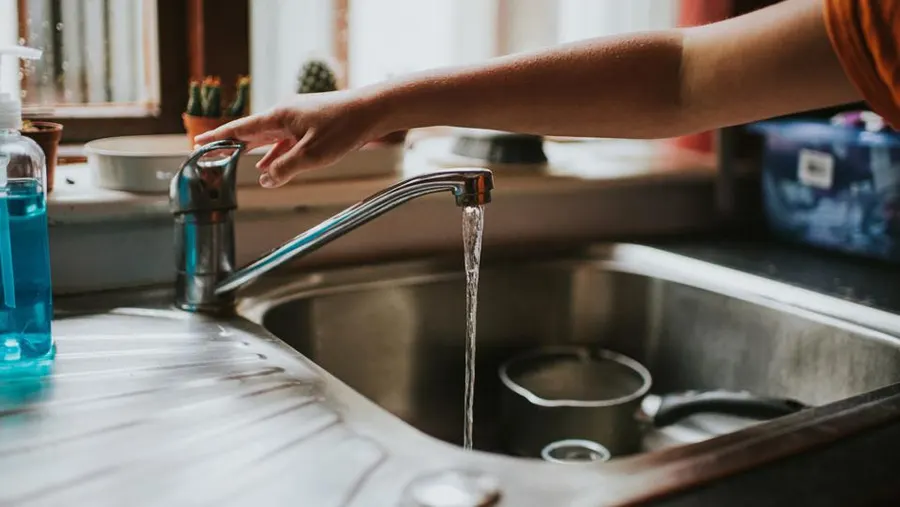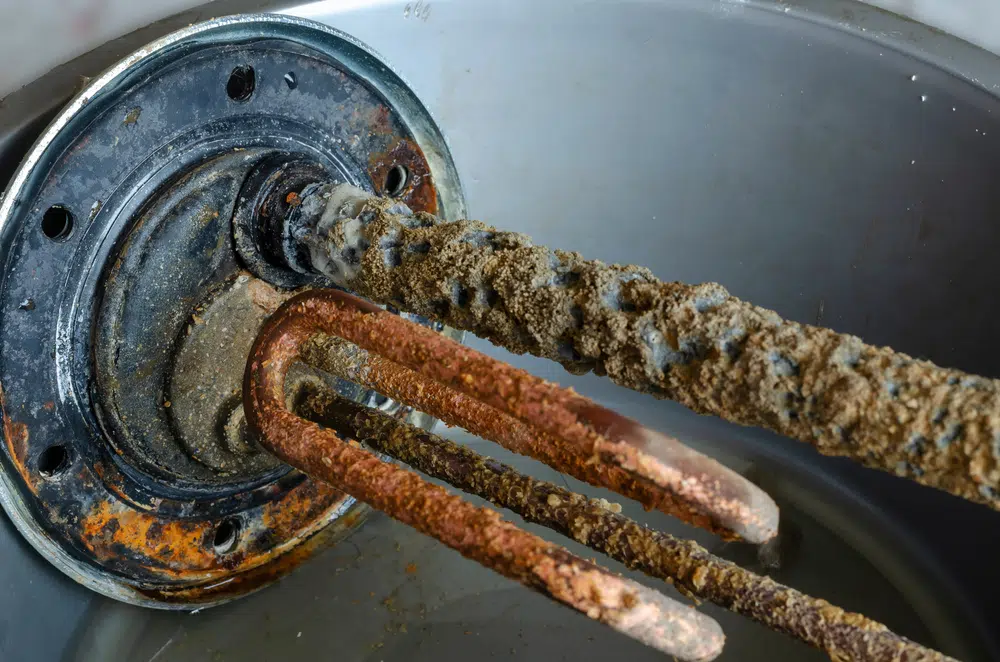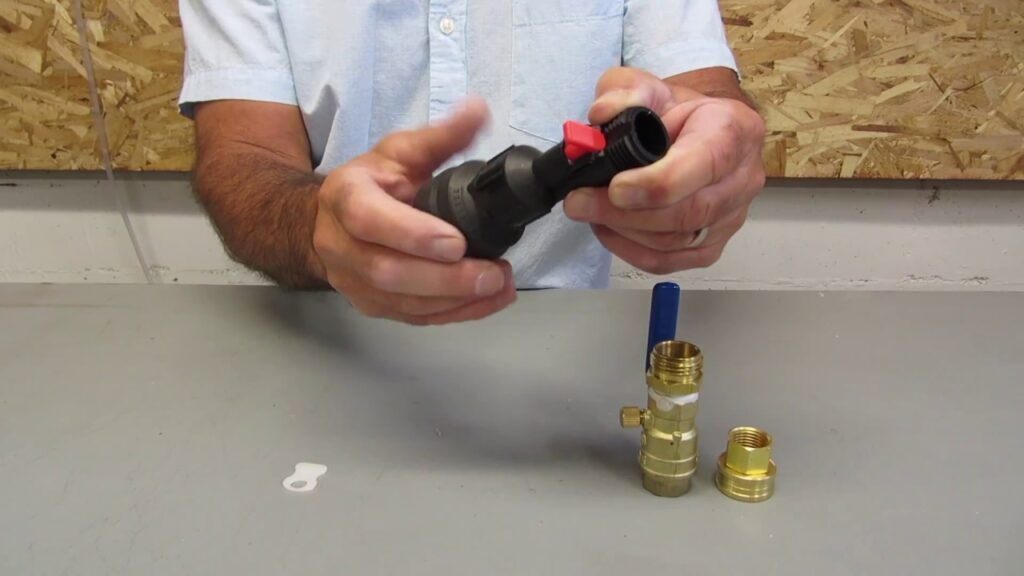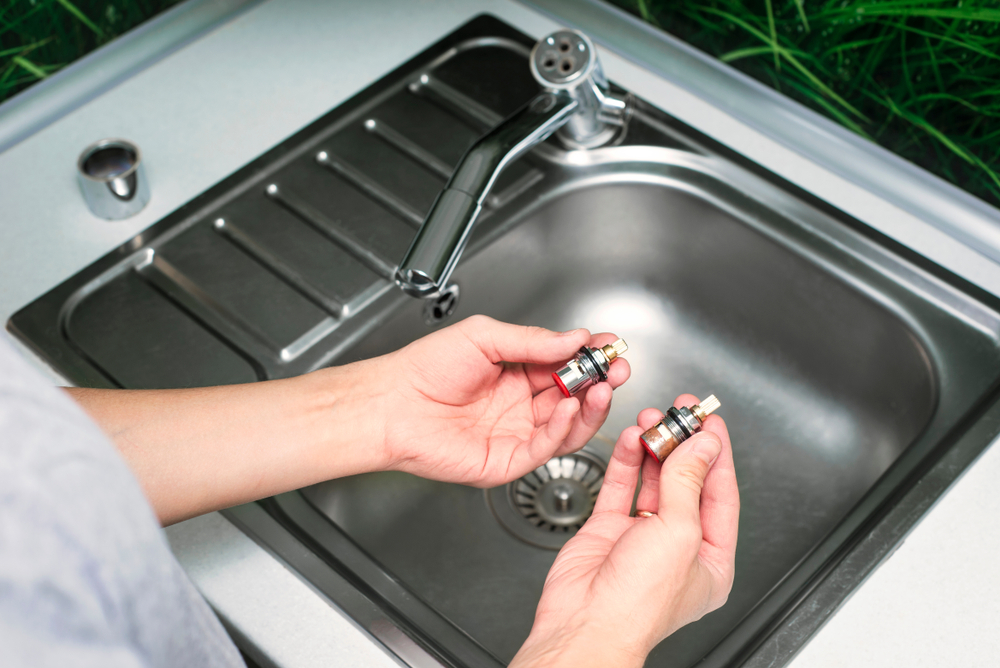Introduction:

Hello friend! We’ve all been there turning the faucet handle to the left, anticipating a stream of hot water to wash our dishes or hands, only to be met with a chilly surprise. It’s a common inconvenience, but fear not! This guide is here to help you troubleshoot and resolve the issue of having no hot water in your kitchen sink.
A brief overview of the inconvenience caused by the absence of hot water in the kitchen sink.
Having no hot water in the kitchen sink can be more than a mere annoyance. It can hinder your cooking and cleaning activities, making it difficult to wash dishes properly, remove grease, or even wash your hands adequately. But worry not, with a bit of guidance and a sprinkle of patience, you can navigate through this chilly situation and restore warmth to your kitchen sink
I. Common Causes of No Hot Water In Kitchen Sink:
Hello there! It’s quite frustrating when you turn on the tap, and there’s no hot water in the kitchen sink, isn’t it? Let’s delve into some common causes and solutions to this chilly problem, ensuring your home maintenance is top-notch!
A. Rust or Corrosion in the Heater:

Explanation of how rust and corrosion in the water heater can lead to no hot water.
Rust and corrosion in the water heater are common culprits behind the absence of hot water. They can severely impact valves, hoses, and pipes, leading to leakages and disrupting the water supply line.
Mention the impact on valves, hoses, and pipes.
When rust and corrosion occur, they can cause the water heater tank to leak, affecting the water flow rate and water pressure, ultimately leading to no hot water in your kitchen sink.
Solutions: Cleaning or replacing affected components.
To combat rust and corrosion, consider cleaning or replacing the affected components. Regular water heater maintenance and inspection can prevent such issues, ensuring water heater efficiency and reliability.
B. Physical Blockages:
Discussion on how mineral build-up or debris can block hot water valves.

Physical blockages, often due to mineral buildup or debris, can obstruct hot water valves, preventing the flow of hot water. This sediment accumulation can be particularly troublesome, requiring immediate attention.
Solutions: DIY cleaning methods or professional plumbing services if needed.
You can try DIY cleaning methods to remove minor blockages. However, for serious blockages, seeking professional plumbing repair services is recommended. Regular water heater troubleshooting can also prevent such issues.
C. Malfunctioning Heating Element:
Overview of how damaged or faulty heating elements affect hot water flow.
A malfunctioning heating element can disrupt the hot water flow, making water heating time longer and sometimes leading to a complete water heater failure.
Solutions: Inspection and replacement of damaged elements.
Inspect the heating elements regularly and replace them if damaged. Ensure to follow water heater safety guidelines during inspection and replacement.
D. Water Line Blockage:

Explanation of how corrosion or mineral buildup in water lines can disrupt hot water flow.
Corrosion or mineral buildup in water lines can lead to water line blockage, disrupting the hot water supply and affecting the water flow rate.
Solutions: Professional plumbing services for serious blockages.
For serious blockages in the water line, professional plumbing services are essential. Regular water heater maintenance can help in early detection and repair of such issues.
E. Faulty Cartridge:

Description of the role of the cartridge in controlling water flow and how its malfunction can lead to no hot water.
The cartridge plays a crucial role in controlling water flow. A faulty or clogged faucet cartridge can lead to no hot water in the kitchen sink.
Solutions: Cleaning or replacing the cartridge.
Cleaning or replacing the faulty cartridge can resolve the issue. Regular inspection of the faucet cartridge is essential to prevent such problems.
II. Effective Solutions:
Hello again! Now that we’ve explored the common causes of no hot water in the kitchen sink, let’s dive into some effective solutions. These will help you in maintaining your home and ensuring a steady flow of hot water in your kitchen sink.
A. Removing Rust and Corrosion:
Eco-friendly methods to remove rust and corrosion from kitchen sink elements.
Rust and corrosion can be a real menace to your water heater and plumbing system. Using eco-friendly methods like a mixture of baking soda and vinegar can help in removing rust and corrosion from the affected components, ensuring the longevity of your water heater and maintaining water heater efficiency.
B. Clearing Blockages:
Step-by-step guide on removing physical blockages and hard water deposits.

Physical blockages, often due to sediment accumulation or mineral buildup, can disrupt the flow of hot water. Regularly cleaning the hot water valve and other components can prevent such blockages. A step-by-step guide on removing such blockages can be found in our Blockage Clearing Guide.
C. Replacing Faulty Elements:
Guidance on replacing damaged water heaters or cartridges.
Faulty heating elements or a damaged faucet cartridge can lead to no hot water in the kitchen sink. Replacing such faulty elements is crucial. Ensure to follow the water heater safety guidelines and consult the water heater manual for proper instructions on heating element replacement and faucet cartridge replacement.
D. Professional Assistance:
When and why to seek professional help for persistent issues.
Sometimes, DIY solutions might not resolve the issue, and seeking professional plumbing repair services becomes essential. Persistent issues like water line blockage or a gas leak should be addressed by professionals to avoid any risks and ensure water heater safety.
III. Preventive Measures:
Alright, let’s talk prevention! Regular maintenance and timely intervention are your best friends when it comes to avoiding the inconvenience of having no hot water in the kitchen sink.
Regular inspection and cleaning of water heaters and pipes.
Regularly inspecting and cleaning your water heater and pipes can prevent rust and corrosion, sediment accumulation, and other issues that can lead to water line blockage. This proactive approach ensures the longevity and efficiency of your water heater and maintains a steady water flow rate in your kitchen sink.
Proper maintenance of faucets and cartridges to prevent blockages and malfunctions.
Maintaining your faucets and cartridges is equally important. Regular cleaning and inspection can prevent clogged faucet cartridges and ensure the proper functioning of the hot water valve, avoiding any disruptions in water supply and ensuring water conservation.
IV. Conclusion:
We’ve journeyed through the common causes, effective solutions, and preventive measures for having no hot water in the kitchen sink. It’s clear that regular maintenance, inspection, and timely intervention are crucial in avoiding such inconveniences and ensuring a smooth and steady flow of hot water in your kitchen sink.
Recapitulation of common causes and solutions for no hot water in the kitchen sink.
To recap, rust and corrosion, physical blockages, faulty heating elements, and malfunctioning cartridges are some of the common causes of no hot water in the kitchen sink. Regular inspection, cleaning, and maintenance, along with timely replacements and professional assistance when needed, are the keys to resolving such issues.
Emphasis on the importance of regular maintenance and timely intervention to avoid inconvenience.
Remember, regular home maintenance, especially focusing on water heater maintenance and water heater troubleshooting, is essential to avoid any disruptions in your water supply line and ensure the longevity and reliability of your water heater. Timely intervention can prevent potential leakages, gas leaks, and other serious issues, ensuring the safety and comfort of your home.
FAQ:
In this section, we’ll address some frequently asked questions that might pop up as you navigate through the journey of maintaining a steady flow of hot water in your kitchen sink.
Q1. How often should I inspect my water heater for rust and corrosion?
Regular inspection of your water heater is crucial. Ideally, you should inspect it every six months for any signs of rust and corrosion. Regular water heater maintenance can help in early detection and resolution of such issues, ensuring the longevity and efficiency of your water heater.
Q2. Can I fix a malfunctioning heating element myself, or should I call a professional?
While some minor issues with heating elements can be resolved with a bit of DIY and following water heater troubleshooting guides, it’s always safer to call a professional, especially if you’re unsure. Professionals can properly assess the situation, perform heating element replacement if needed, and ensure water heater safety
Q3. What are the signs of a faulty cartridge in my kitchen faucet?
Signs of a faulty cartridge may include inconsistent water flow, leakage around the faucet, and difficulty in adjusting the temperature. Regular inspection and maintenance of the faucet cartridge can prevent such issues. If you notice any of these signs, refer to our Faucet Repair Materials Guide for solutions and advice.
Q4. How can I prevent mineral build-up in my water lines?
To prevent mineral build-up in your water lines, consider installing a water softener to reduce the hardness of the water, and regularly clean the water lines. Regular home maintenance and water line cleaning can prevent water line blockage due to mineral build-up.
Q5. Is low water pressure in the kitchen sink always due to blockages?
While blockages are a common cause of low water pressure, it’s not always the case. Issues like leakages, malfunctioning valves, and problems in the water supply line can also lead to low water pressure. Regular inspection and maintenance can help in early detection and resolution of such issues.

